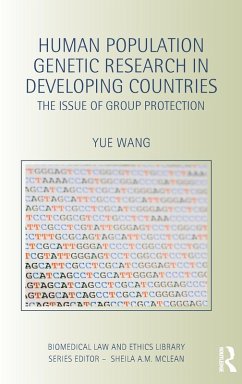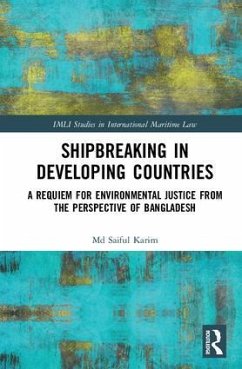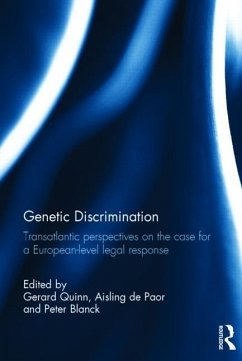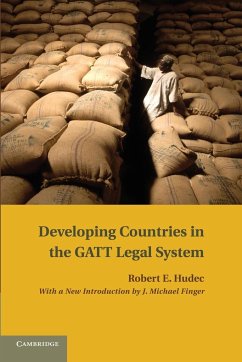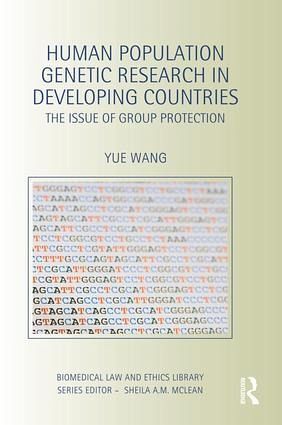
Human Population Genetic Research in Developing Countries
The Issue of Group Protection
Versandkostenfrei!
Versandfertig in 1-2 Wochen
42,99 €
inkl. MwSt.
Weitere Ausgaben:

PAYBACK Punkte
21 °P sammeln!
Human population genetic research (HPGR) seeks to identify the diversity and variation of the human genome and how human group and individual genetic diversity has developed. This book asks whether developing countries are well prepared for the ethical and legal conduct of human population genetic research, with specific regard to vulnerable target group protection. The book highlights particular issues raised by genetic research on populations as a whole, such as the potential harm specific groups may suffer in genetic research, and the capacity for current frameworks of Western developed cou...
Human population genetic research (HPGR) seeks to identify the diversity and variation of the human genome and how human group and individual genetic diversity has developed. This book asks whether developing countries are well prepared for the ethical and legal conduct of human population genetic research, with specific regard to vulnerable target group protection. The book highlights particular issues raised by genetic research on populations as a whole, such as the potential harm specific groups may suffer in genetic research, and the capacity for current frameworks of Western developed countries to provide adequate protections for these target populations. Using The People's Republic of China as a key example, Yue Wang argues that since the target groups of HPGR are almost always from isolated and rural areas of developing countries, the ethical and legal frameworks for human subject protection need to be reconsidered in order to eliminate, or at least reduce, the vulnerability of those groups. While most discussion in this field focuses on the impact of genetic research on individuals, this book breaks new ground in exploring how the interests of target groups are also seriously implicated in genetic work. In evaluating current regulations concerning prevention of harm to vulnerable groups, the book also puts forward an alternative model for group protection in the context of human population genetic research in developing countries. The book will be of great interest to students and academics of medical law, ethics, and the implications of genetic research.





